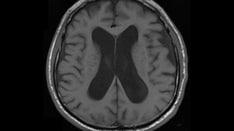Long COVID can exacerbate existing mental health disorders or cause new-onset psychiatric symptoms, but mental illness does not cause long COVID, experts say.
The consensus guidance statement on the assessment and treatment of mental health symptoms in patients with post-acute sequelae of SARS-CoV-2 infection (PASC), also known as long COVID, was published online in Physical Medicine and Rehabilitation, the journal of the American Academy of Physical Medicine and Rehabilitation (AAPM&R).
The statement was developed by a task force that included experts from physical medicine, neurology, neuropsychiatry, neuropsychology, rehabilitation psychology, and primary care. It is the eighth guidance statement on long COVID published by AAPM&R.
"Many of our patients have reported experiences in which their symptoms of long COVID have been dismissed either by loved ones in the community, or also amongst healthcare providers, and they've been told their symptoms are in their head or due to a mental health condition, but that's simply not true," Abby Cheng, MD, a physiatrist at Barnes Jewish Hospital in St. Louis, who is a co-author of the new guidance, said in a press briefing.
"Long COVID is real, and mental health conditions do not cause long COVID," Cheng added.
Millions of Americans Affected
Anxiety and depression have been reported as the second and third most common symptoms of long COVID, according to the guidance statement.
There is some evidence that the body's inflammatory response — specifically, circulating cytokines — may contribute to the worsening of mental health symptoms or may bring on new symptoms of anxiety or depression, said Cheng. Cytokines may also affect levels of brain chemicals, such as serotonin, she said.
Researchers are also exploring whether the persistence of virus in the body, miniature blood clots in the body and brain, and changes to the gut microbiome affect the mental health of people with long COVID.
Some mental health symptoms — such as fatigue, brain fog, sleep disturbances, and tachycardia — can mimic long COVID symptoms, said Cheng.
The treatment is the same for someone with or without long COVID who has anxiety, depression, posttraumatic stress disorder, or other mental health conditions and includes treatment of coexisting medical conditions, supportive therapy and cognitive-behavioral therapy, and pharmacologic interventions, she said.
"Group therapy may have a particular role in the long COVID population because it really provides that social connection and awareness of additional resources in addition to validation of their experiences," Cheng said.
The guidance suggests that primary care practitioners — if it's within their comfort zone and they have the training — can be the first line for managing mental health symptoms.
But for patients whose symptoms are interfering with functioning and their ability to interact with the community, the guidance urges primary care clinicians to refer the patient to a specialist.
"It leaves the door open to them to practice within their scope but also gives guidance as to how, why, and who should be referred to the next level of care," said Cheng.
Co-author Monica Verduzco-Gutierrez, MD, chair of rehabilitation medicine at UT Health San Antonio, Texas, said that although fewer people are now getting long COVID, "it's still an impactful number."
The Centers for Disease Control and Prevention recently estimated that about 7% of American adults (18 million) and 1.3% of children had experienced long COVID.
Gutierrez said that it's an evolving number, as some patients who have a second or third or fourth SARS-CoV-2 infection experience exacerbations of previous bouts of long COVID or develop long COVID for the first time.
"We are still getting new patients on a regular basis with long COVID," said AAPM&R President Steven Flanagan, MD, a physical medicine specialist.
"This is a problem that really is not going away. It is still real and still ever-present," said Flanagan, chair of rehabilitation medicine at NYU Grossman School of Medicine.
Alicia Ault is a St. Petersburg, Florida-based freelance journalist whose work has appeared in publications including JAMA and Smithsonian.com. You can find her on X (formerly Twitter): @aliciaault.
Credits:
Lead image: Ralf Liebhold/Dreamstime
Medscape Medical News © 2023 WebMD, LLC
Send news tips to news@medscape.net.
Cite this: Long COVID and Mental Illness: New Guidance - Medscape - Nov 10, 2023.







Comments